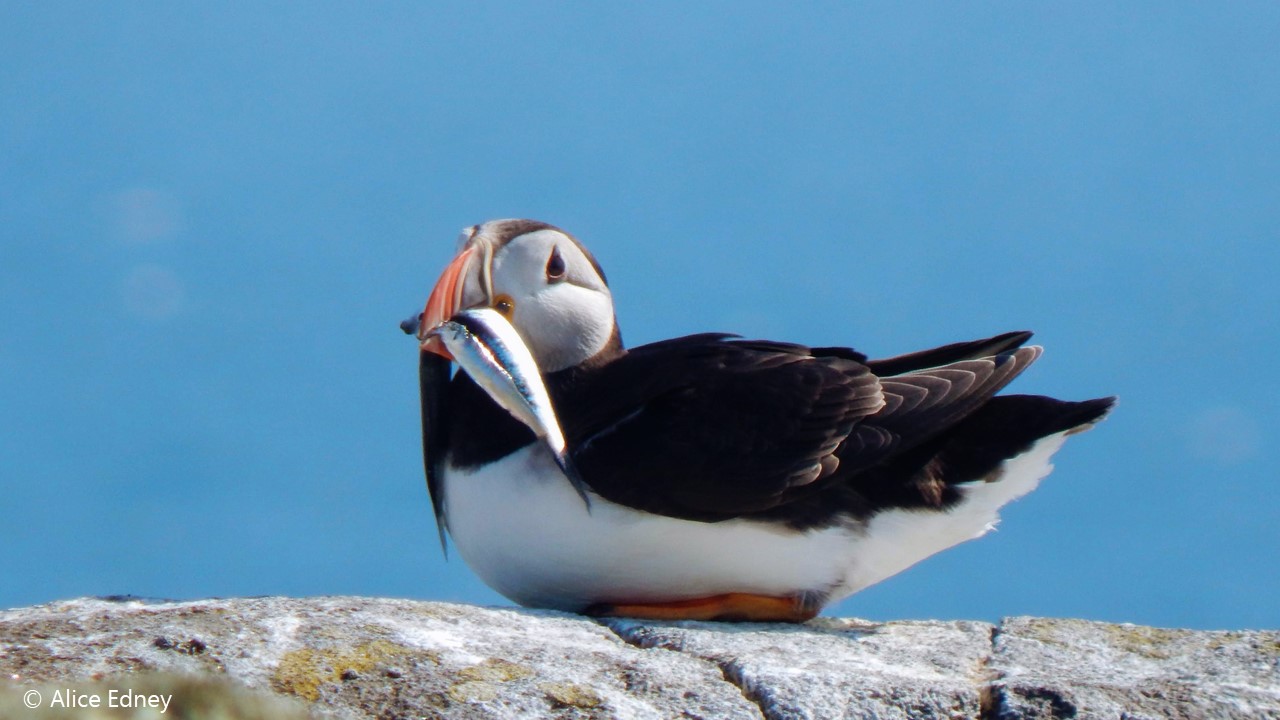This blog post comes from DPhil student Alice Edney, who is a seabird ecologist funded by the NERC DTP in Environmental Research.
Over the 4-8th October I attended the 3rd World Seabird Conference (WSC3)–my first conference as a DPhil student. Originally, the conference was scheduled for October 2020 in Tasmania; although as with most events of late, it was postponed to a virtual event in 2021.
At first, I was apprehensive of the conference being online, as I was worried that participating from home could be lonely and would hinder the discussions and networking that I had been looking forward to at an in-person conference. To try and combat this, I joined up with other seabird researchers in Oxford and booked a room at my college (St Edmund Hall), so we could attend the conference together. Each day, pre-recorded presentations were shown on Zoom, followed by a live Q&A with the speakers, as well as Zoom workshops, poster sessions on GatherTown and other online social events in the evening. While participation with others did stimulate rather more discussion than listening at times (!), it made the experience much more enjoyable and allowed some impromptu pub trips, where we could mull over the day’s events.
I spoke on behalf of the RSPB’s Project Puffin–also known as the Puffarazzi–which uses photos of Atlantic Puffins carrying fish, sent in by members of the public
The number and breadth of topics discussed at the WSC3 was impressive, and I am grateful that all presentations and posters will be available to view for one year, as there was not time to watch everything I was interested in during the week. Workshops provided an excellent way to discuss ‘hot’ topics in seabird research, and on the Monday I participated in an ‘Empowering citizen science’ workshop. I spoke on behalf of the RSPB’s Project Puffin–also known as the Puffarazzi–which uses photos of Atlantic Puffins carrying fish, sent in by members of the public, to see how diet varies over time and across the UK. We discussed the uses of citizen science in seabird research in comparison to more ‘traditional’ monitoring methods, the pros and cons of different technologies, and how engagement and longevity can be maintained in citizen science projects. As a PhD student working on data from the citizen science project Seabird Watch (Seabirdwatch — Zooniverse), it was interesting to consider how we can make public engagement more effective and efficient, as outreach can take considerable time.
With increased discussion on the carbon footprint of international conferences, it will be interesting to see how many remain online in the coming years
Overall, I really enjoyed my first conference experience and am grateful that I was able to attend it with other researchers, albeit not an in-person event. With increased discussion on the carbon footprint of international conferences, it will be interesting to see how many remain online in the coming years.

